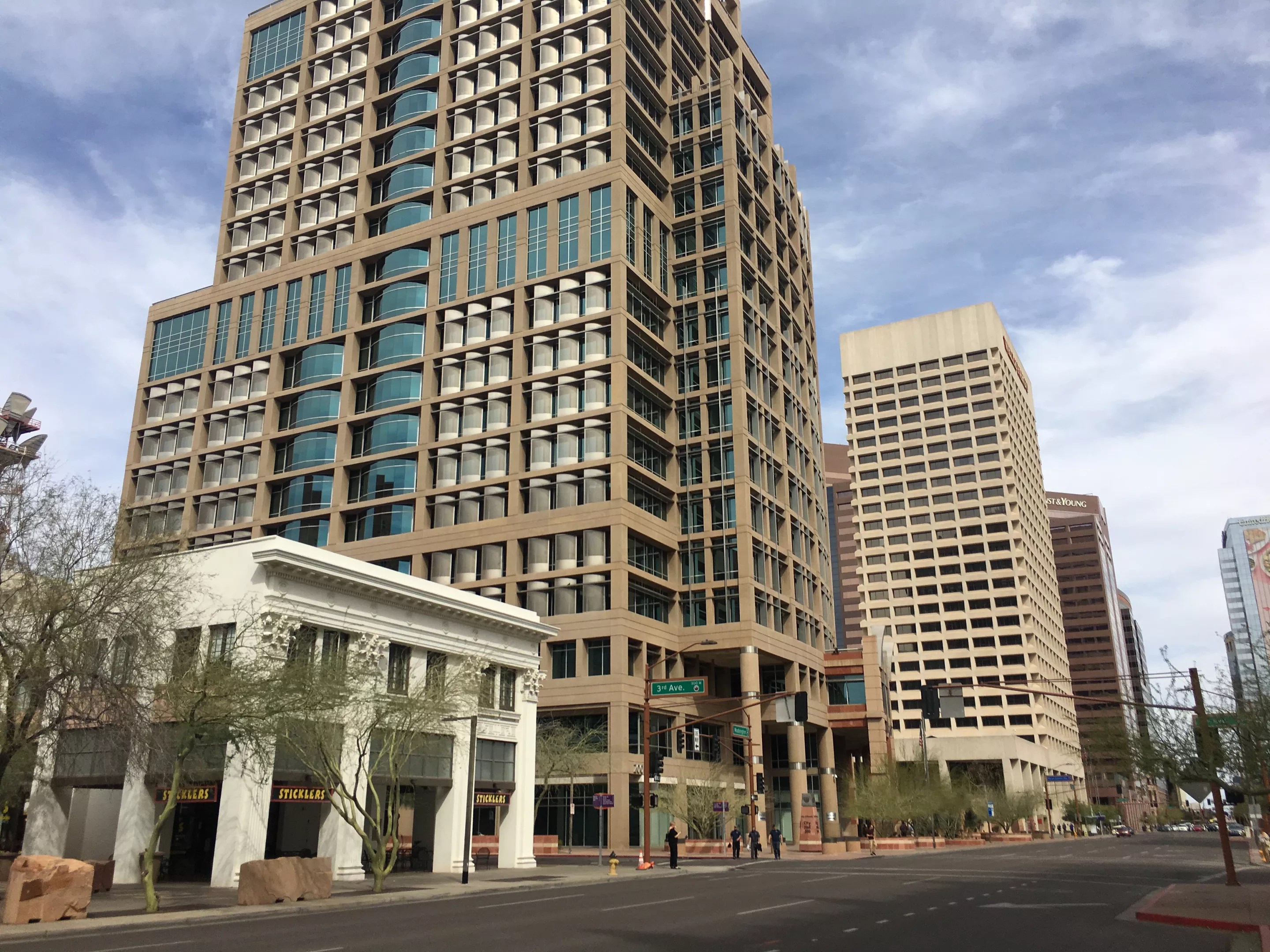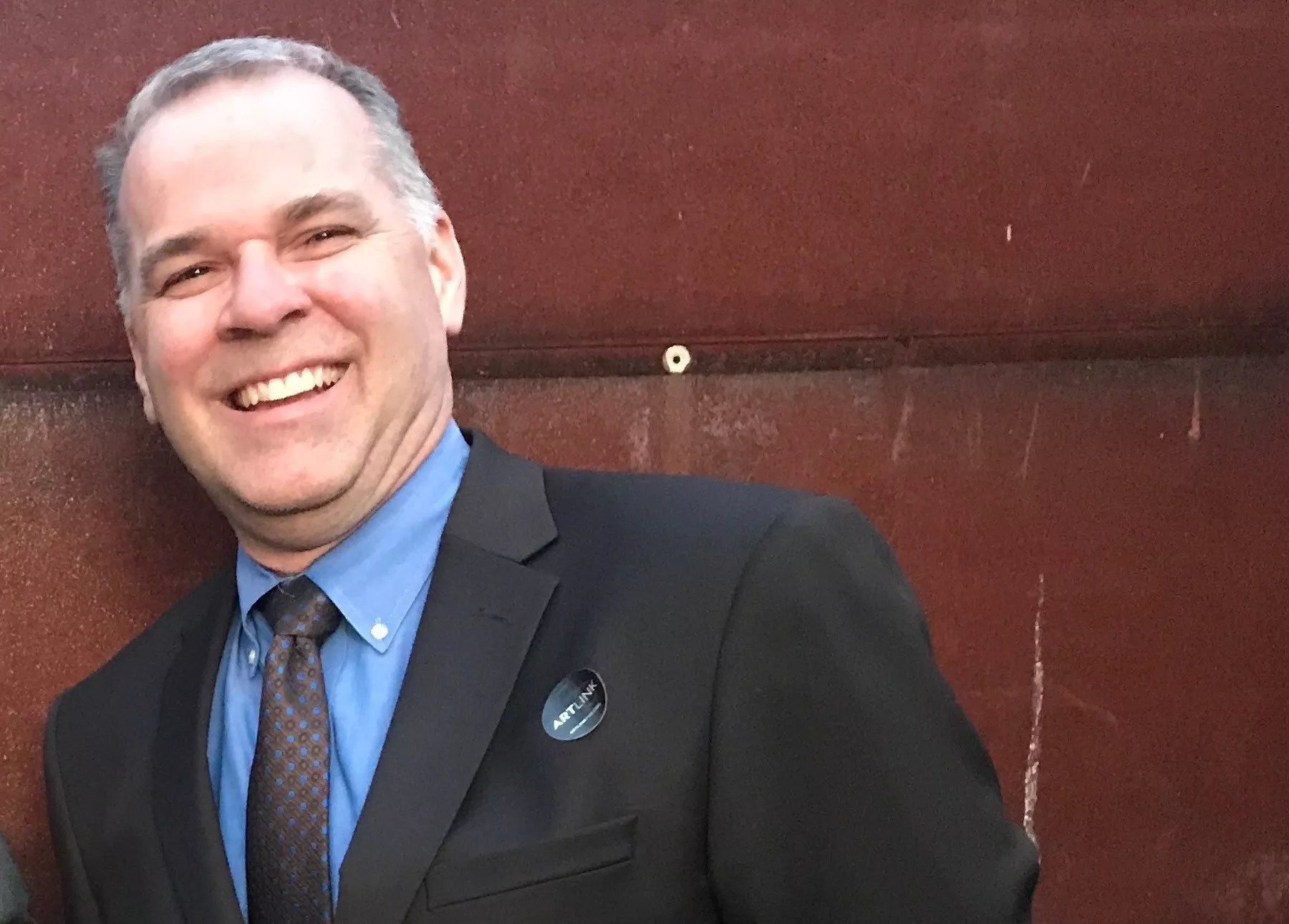
Elizabeth Whitman/Phoenix New Times

Audio By Carbonatix
Mario Ayala says the city of Phoenix is bullying its blue-collar workers.
Since January, the union representing those workers – the people who fix our streets and water mains, who maintain the trucks that collect our garbage, whose work is often least appreciated – has been negotiating with the city for a new contract.
They just barely have reached a tentative agreement, and today, the Phoenix City Council is scheduled to vote to impose a new two-year contract on those workers – a contract that the union says it had too little leverage in negotiating.
The current contract expires on June 30.
On Tuesday night, the 1,500 members of “Unit 2” voted in favor of the city’s final proposed agreement to them – the second of two agreements that will come before council members today. Council members could vote to impose the first, which is preferred by the city, or the second, approved by the union.
“They ultimately can do whatever they want,” said Ayala, who is president of AFSCME Local 2384; its Unit 2 covers blue-collar workers.The City Council would likely approve whatever contract the city manager recommended, Ayala said.
Despite their vote in favor of an agreement, Ayala said that members didn’t really have a choice. “We had to choose a bad situation or a worse situation,” he said.
Striking is not an option. Phoenix City Code lists strikes under “prohibited practices,” saying that employees “shall not engage in, initiate, sponsor, or direct a strike.” According to Ayala, if the workers were to strike, they would all be fired.
“The city is still in discussions and hopes to reach an agreement,” Matt Heil, a spokesperson for the city, said on Tuesday evening. He did not respond to a request for comment regarding Ayala’s claims that the city was not negotiating in good faith with AFSCME 2384.
Over the last four months, the city and the unit have disagreed over calculations for overtime pay, recourse for employees who feel they’ve been treated unfairly or differently, and the resolution process if an employee claims that their contract has been violated, among other work-related issues. They’ve also disagreed over wages and compensation and classification studies that could help boost pay for workers.

City Manager Ed Zuercher
Lynn Trimble
The City Council’s vote today is the last step of a protracted battle between the city and the union.
After negotiations began in January, they had until March 1 to reach an agreement. That deadline blew by, so in March, a fact-finder held proceedings to discuss outstanding issues. The fact-finder issued a report in April, but in May negotiations regressed, according to Ayala.
On May 8, the city suddenly presented the union with new issues that it wanted to negotiate, Ayala said. Yet the day before, City Manager Ed Zuercher had indicated that both sides needed only to agree on a few more outstanding items.
By the end of that week – this was Thursday night – Zuercher was telling Ayala that they needed to hurry and wrap up negotiations.
“It’s very important that this agreement is reached in an expeditious manner,” Zuercher wrote Ayala in an email. “It needs to be complete by Friday afternoon because we have to get language to the Council for review over the weekend.”
Ayala saw the whole process as deeply unfair, occurring because Unit 2 members tried to hold out in an effort to secure better terms for themselves.
“Now, in the bottom of the ninth, new items to negotiate are being introduced,” he said. “It’s not a negotiation anymore. It’s a dictatorship.”